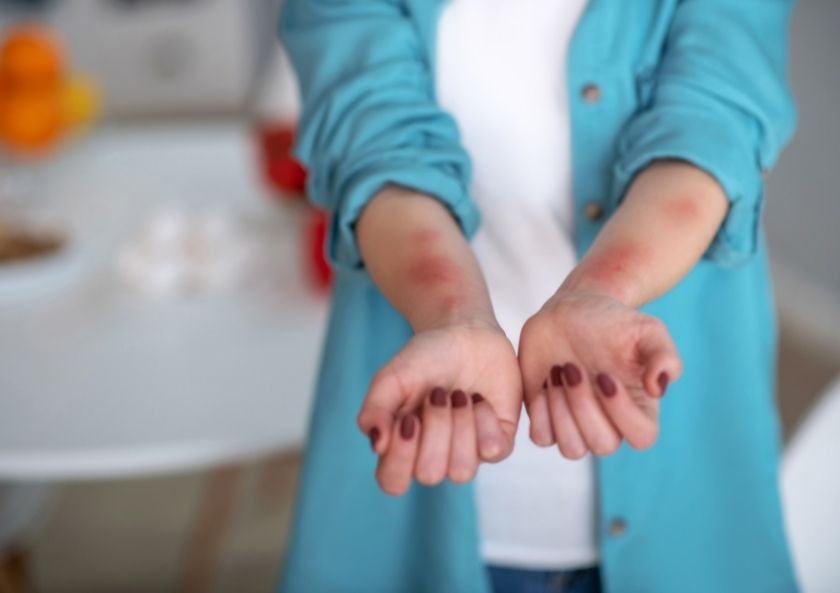Hives are caused by sudden itchy rashes on the skin. The size and color of the hives on the skin may vary from person to person. Since hives usually last between 24 and 48 hours, families do not prefer to wait for it to pass and go to the doctor. Diagnosis is important so that hives that cause itchy rashes do not affect your child. So, how does the diagnosis of hives take place? In this article, we explained the diagnosis of hives to inform you.
How Is Hives Diagnosed?
The diagnosis of hives is food allergy, which is close to certainty as the underlying cause of the urticaria. Because there are certain foods, such as nuts or seafood, that trigger hives, and the symptoms of hives appear soon after consuming them.
Since there may be many underlying causes in other cases, a detailed examination should be made by your specialist.
Is Food Allergy the Underlying Cause?
The occurrence of hives only once may not require a detailed examination. If a food allergy is suspected, you may consider keeping a list of the foods your child eats. Thus, if the underlying food allergy is the urticaria, it can be understood which food it is related to and in which periods it occurs.
Hives (urticaria) should be examined by an allergist. Because the allergist has the capacity to question and deduce the allergies in your child and your family in the past, the substances they are exposed to at home or in social life, pet hair or skin rash, and the drugs used.
Allergy Test in the Diagnosis of Hives
Your allergist may want to do a skin allergy test and a blood allergy test to determine the cause of the hives. In the skin prick test, the food thought to be a trigger is determined, and a treatment path is followed accordingly. After the nutrient has been identified, it is recommended that you remove the nutrient and all foods containing that nutrient from your child’s diet list. Then with loading, symptoms are observed.
If a skin prick test is performed for drugs, the suspicious drug is revealed. In the same way, certain steps are applied in the drug.
Your allergist may also perform a blood test for diagnosis. However, skin allergy test shows the most accurate result for an allergy test. Because in the skin allergy test, the reaction of the child against that allergen is directly measured. The reliability of blood tests varies depending on the quality of the machine, the amount of blood, and whether the blood has been waiting.
In short, since the underlying cause of urticaria will most likely be allergies, an allergy specialist is capable of questioning your child and your child’s genetic factors, their predisposition to allergies, the foods they eat, the medications they use, and making inferences accordingly.



